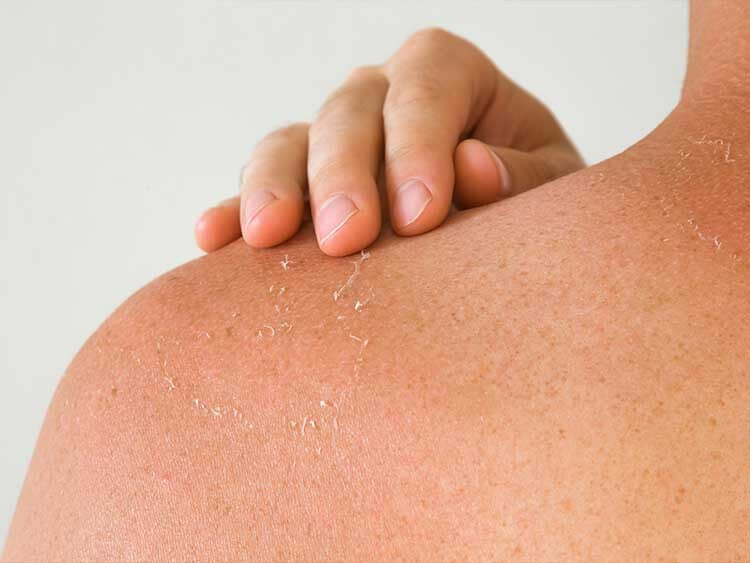Fragrance is a common ingredient in many skincare products, but it can also cause irritation and allergies for some people. As a consumer, it's important to understand the difference between synthetic and natural fragrances, how they impact your skin, and the risks associated with their use. In this blog post, we will explore the world of fragrance in skincare, discuss how to make safe choices, and examine alternative skincare options for those with sensitive skin.
Understanding Fragrance in Skincare

Fragrance has long been a contentious topic in the world of skincare. Some people love the luxurious and pleasant scents of their favourite skincare products, while others swear by fragrance-free formulas to avoid potential irritants. However, fragrance in skincare goes beyond just personal preference. It can have both positive and negative effects on the skin, depending on the type and amount used. Understanding the role of fragrance in skincare can help you make informed decisions when choosing products for your own skin type and concerns. In this section, we'll delve deeper into the world of fragrance in skincare and explore its impact on our skin.
Synthetic Fragrances vs. Natural Fragrances
Fragrances in skincare can be derived from synthetic or natural sources. Synthetic fragrances are created using chemicals, while natural fragrances come from plant-based materials, such as essential oils. Both types have their pros and cons. Synthetic fragrances tend to be more affordable, but they may also cause irritation for some users. Natural fragrances, on the other hand, are generally considered to be less irritating, but they can still cause reactions in those with sensitivities.
The Impact of Fragrance on Skin
Fragrance can cause irritation and allergies for a number of reasons. Firstly, fragrance ingredients are often volatile and can evaporate quickly, causing an immediate reaction on the skin's surface. This can be especially problematic for those with sensitive skin, as their skin is more easily irritated. Additionally, fragrances are composed of a complex mixture of compounds, and it can be difficult to determine which specific ingredient is causing a reaction. This is further complicated by the fact that fragrance ingredients are often listed under a generic term such as "fragrance" or "parfum," making it difficult for consumers to know exactly what they're applying to their skin.
Furthermore, fragrance can also impact the skin's barrier function. The skin barrier is made up of a combination of lipids, or fats, that act as a protective barrier to prevent moisture loss and protect against external irritants and pathogens. However, some fragrance ingredients can disrupt this barrier, leading to increased sensitivity, dryness, and irritation. This can cause a vicious cycle, as a weakened skin barrier is more susceptible to further irritation and damage.
The Risks of Fragrance in Skincare

While many people enjoy using skincare products with pleasant fragrances, there are potential risks associated with fragrance in skincare that should not be overlooked. Fragrances are a common ingredient in skincare products, but they can be a source of skin irritation, allergies, and even long-term health effects. In fact, fragrance is one of the top five allergens in the world, and it can be difficult to identify which specific fragrance ingredient is causing the problem. In this section, we'll explore the risks associated with fragrance in skincare, and provide tips on how to minimize your exposure to potentially harmful ingredients.
Irritation and Allergies
Fragrances, both synthetic and natural, can cause skin irritation and allergies. This is particularly concerning for those with sensitive skin or pre-existing skin conditions, such as eczema or rosacea. Signs of irritation or an allergic reaction can include redness, itching, burning, or swelling.
Skin Barrier Function
Fragrances can disrupt the skin's barrier function by causing inflammation or irritation. This can leave the skin more vulnerable to environmental stressors, such as pollutants and allergens. A weakened skin barrier can also lead to dryness, sensitivity, and an increased risk of developing skin conditions.
Making Safe Choices for Fragrance in Skincare

As we've learned, fragrance in skincare products can pose risks to our skin and health. However, that doesn't mean we need to avoid fragrances altogether. There are safe and effective ways to incorporate fragrances into our skincare routine, as long as we make informed choices. With a little knowledge and research, we can identify which fragrances are safe for our skin type and concerns, and choose products that contain them in appropriate amounts. In this section, we'll discuss how to make safe choices for fragrance in skincare, and offer guidance on what to look for and what to avoid when selecting products.
Fragrance-Free Skincare
For those who experience irritation or allergies related to fragrances, fragrance-free skincare products are an ideal solution. These products contain no added fragrances, synthetic or natural, and are less likely to cause irritation or allergic reactions.
Choosing Skincare Ingredients
When selecting skincare products, it's essential to pay close attention to the ingredient list. Look for products with gentle, skin-loving ingredients, and avoid common irritants, such as alcohol, sulfates, and parabens. Opt for products that contain soothing ingredients, like aloe vera, chamomile, and green tea, which can help calm and soothe irritated skin.
Understanding Chemicals in Skincare
Not all chemicals in skincare products are harmful. Some chemicals, like hyaluronic acid, glycerin, and ceramides, can provide significant benefits to the skin. It's crucial to research ingredients and understand their purpose before deciding whether they are safe for your skin.
Fragrance Regulations and Safety Standards
Fragrance regulations vary by country, but in general, cosmetic products must meet safety standards before they can be sold. This includes limits on the concentration of certain fragrance ingredients and allergens. However, the regulation of fragrance in skincare products is not always comprehensive, so it's essential to read labels carefully and do your research.
Skincare for Sensitive Skin

Sensitive skin can be a challenge to care for, as it is easily irritated and prone to reactions. Skincare products that work well for others may cause redness, itching, and other unpleasant symptoms in those with sensitive skin. However, with the right approach and products, it is possible to achieve healthy and glowing skin, even with sensitive skin. In this section, we'll delve into the world of skincare for sensitive skin, and offer tips and recommendations on how to care for this delicate skin type. From ingredients to avoid to the best products for sensitive skin, we'll cover everything you need to know to keep your skin healthy and happy.
Skin Sensitivity Testing
If you're unsure whether a skincare product will cause irritation or an allergic reaction, performing a patch test is a helpful step. Apply a small amount of the product to a discreet area, such as the inside of your wrist or behind your ear, and monitor for any signs of irritation or redness over the next 24 to 48 hours.
Hypoallergenic and Non-Irritating Skincare
Hypoallergenic skincare products are formulated to minimize the risk of irritation or allergic reactions. These products often exclude common allergens and irritants, making them suitable for those with sensitive skin or allergies. Non-irritating skincare products focus on gentle ingredients that are less likely to cause skin irritation, such as soothing botanical extracts and plant-based oils.
Dermatologist-Recommended Skincare
Dermatologist-recommended skincare products have been vetted by skincare professionals for their safety and efficacy. These products often contain clinically-proven ingredients and are formulated to address specific skin concerns, such as acne, dryness, or sensitivity.
Alternative Skincare Options
The world of skincare is constantly evolving, and with it comes a wide range of alternative options that challenge traditional skincare practices. From all-natural ingredients to innovative techniques, there are a variety of alternative skincare options available that offer unique benefits and advantages. Whether you're looking to simplify your skincare routine, address specific skin concerns, or simply try something new, there are plenty of options to choose from.
Plant-Based and Holistic Skincare
Plant-based skincare focuses on using ingredients derived from natural sources, such as fruits, vegetables, and herbs. Holistic skincare takes a more comprehensive approach, considering the overall health and well-being of the individual, and often incorporates lifestyle factors, such as diet, exercise, and stress management.
Minimalist and Sustainable Skincare
Minimalist skincare emphasizes simplicity, using fewer products and ingredients to achieve healthy skin. This approach can help reduce the risk of irritation and allergies, as well as minimize the environmental impact of skincare product production and consumption. Sustainable skincare focuses on using eco-friendly ingredients and packaging, supporting ethical practices, and reducing waste.
Conclusion
Navigating the world of fragrance in skincare can be complex, but understanding the risks and benefits associated with synthetic and natural fragrances is essential for making safe choices. By considering fragrance-free, hypoallergenic, and non-irritating skincare options, as well as alternative approaches like plant-based, holistic, minimalist, and sustainable skincare, you can make informed decisions to care for your skin's health and well-being. Always pay attention to ingredients, perform patch tests when necessary, and consult with a dermatologist for personalized recommendations based on your skin type and concerns.















